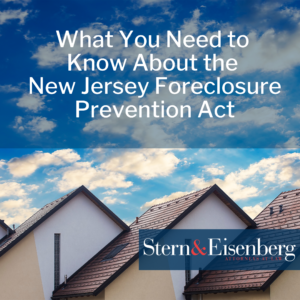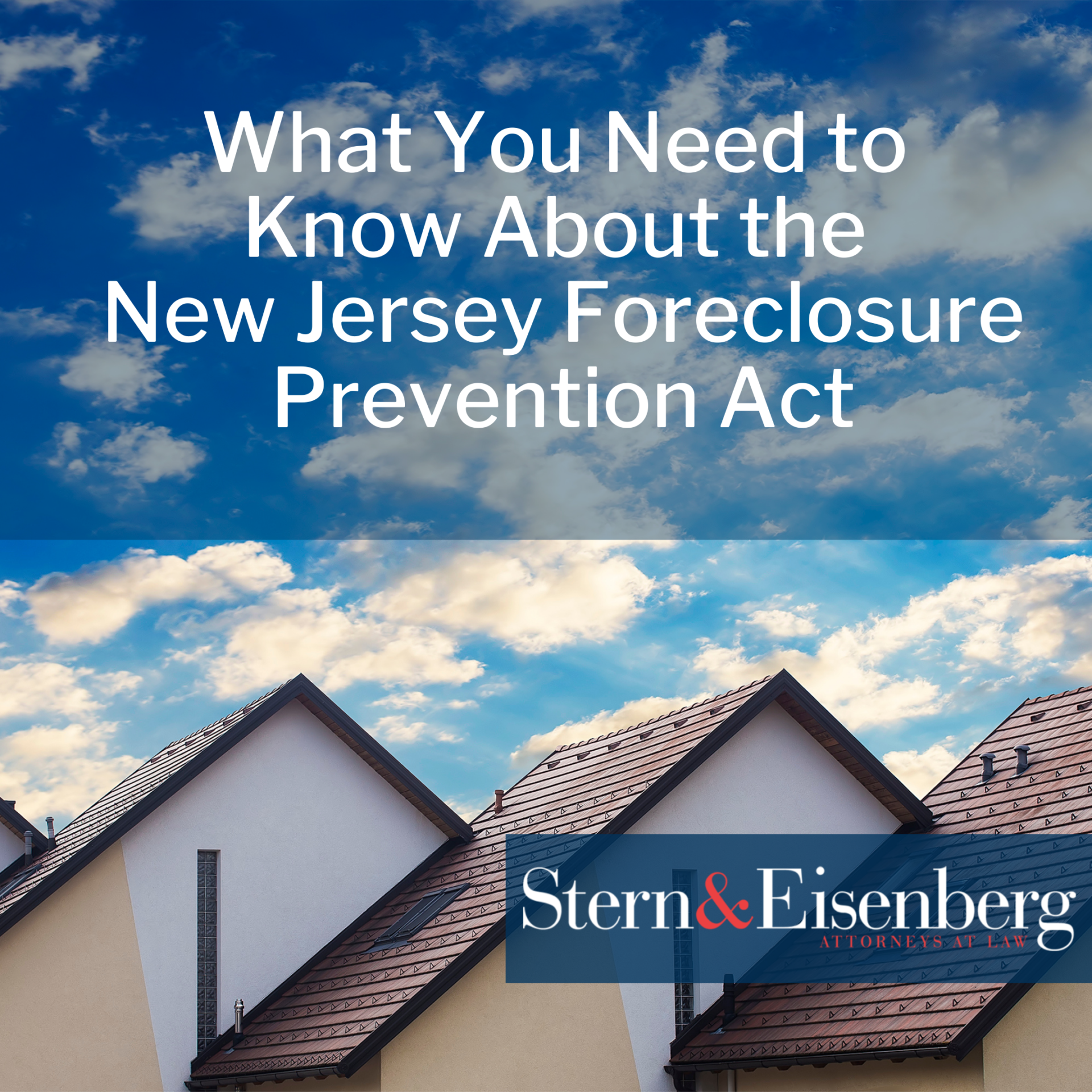By: Salvatore Carollo, Esquire, Senior Litigation Attorney

New Jersey has recently introduced bill A-5130, which is known as the “New Jersey Foreclosure Prevention Act”. This new legislation is seeking to establish the “New Jersey Residential Foreclosure Prevention Program” within the New Jersey Housing and Mortgage Finance Agency (“HMFA”) and would authorize the agency to purchase eligible properties and mortgage assets in an effort to reduce foreclosures and assist municipalities with the rehabilitation of vacant homes. Under the bill, “eligible property” is defined as a residential property or mortgage note owned by an institutional lender as a result of a mortgage foreclosure judgment or a foreclosure, owned by a municipality as the result of a tax foreclosure judgment, or that is subject to a nonperforming loan from an institutional lender. The bill is intended to give the HMFA the ability to allocate grants to non-profits, municipalities, and other governmental agencies to purchase eligible properties for redevelopment into new affordable homes.
The co-sponsor of the bill, Assemblywoman Mila Josey has stated that it was introduced to mitigate loss and stave off foreclosures from the wave of the pandemic-impacted housing crisis. In an effort to fund this program, the bill proposes collecting a new $350 fee from purchasers of foreclosed properties at a sheriff’s sale. However, this proposal is likely to create an even greater strain on institutional lenders during the ongoing pandemic since these same lenders make up the majority of successful purchasers at foreclosure sales. It becomes increasingly difficult to reconcile how the collection of an additional fee following the completion of a foreclosure sale will be an effective tool in mitigating high foreclosure rates in New Jersey. There has also been no discussion as to how the rehabilitation of vacant or abandoned homes will result in a net reduction of foreclosures. There is already a mechanism in place through the real estate owned (REO) process where a lender takes ownership of a foreclosed property when it fails to sell at the amount sought to cover the loan balance. These REO properties are often rehabilitated and sold at a significant discount by the lender to compensate for the condition of the property. Logically, it would then seem that foreclosure prevention and/or mitigation efforts should instead be focused on reducing the likelihood that homeowners will become delinquent in the first place.
Perhaps, the more effective approach would be to create programs that allocate public funds towards the cure or reinstatement of delinquent loans for impacted homeowners. Another viable strategy for our legislators to consider is to offer property tax abatements to eligible households. It’s no secret that state and municipal property taxes in New Jersey are amongst the highest in the nation. A significant reduction in these taxes for households negatively impacted by the pandemic would presumably go much further in assisting distressed homeowners versus the benefits of this yet unproven legislation. Ultimately, only time will tell if this bill proves to be an effective measure in combatting the projected onslaught of foreclosures as we continue to navigate through the pandemic. Regrettably, the time expected for our state agencies to become proficient in the real estate resale industry is a luxury that many of our citizens facing imminent foreclosure simply do not have.
